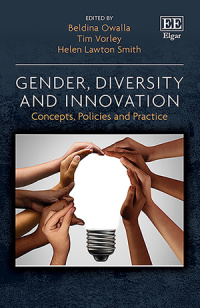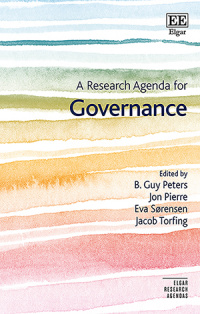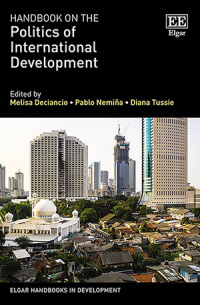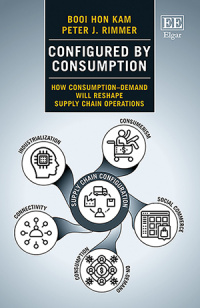平装
Handbook on the Knowledge Economy
This fascinating Handbook defines how knowledge contributes to social and economic life, and vice versa. It considers the five areas critical to acquiring a comprehensive understanding of the knowledge economy: the nature of the knowledge economy; social, cooperative, cultural, creative, ethical and intellectual capital; knowledge and innovation systems; policy analysis for knowledge-based economies; and knowledge management.
More Information
Contributors
内容
More Information
This fascinating Handbook defines how knowledge contributes to social and economic life, and vice versa. It considers the five areas critical to acquiring a comprehensive understanding of the knowledge economy: the nature of the knowledge economy; social, cooperative, cultural, creative, ethical and intellectual capital; knowledge and innovation systems; policy analysis for knowledge-based economies; and knowledge management.
In presenting the outcomes of an important body of research, the Handbook enables knowledge policy and management practitioners to be more systematically guided in their thinking and actions. The contributors cover a wide disciplinary spectrum in an accessible way, presenting concise, to-the-point discussions of critical concepts and practices that will enable practitioners to make effective research, managerial and policy decisions. They also highlight important new areas of concern to knowledge economies such as wisdom, ethics, language and creative economies that are largely overlooked.
Distinguished by a combination of practical relevance and analytical rigour, this Handbook provides new insights into the basic mechanisms that constitute a knowledge economy and society, and will be invaluable to practitioners and academics in diverse areas of interest, including: knowledge management, innovation management, knowledge policy, social epistemology, and development studies.
In presenting the outcomes of an important body of research, the Handbook enables knowledge policy and management practitioners to be more systematically guided in their thinking and actions. The contributors cover a wide disciplinary spectrum in an accessible way, presenting concise, to-the-point discussions of critical concepts and practices that will enable practitioners to make effective research, managerial and policy decisions. They also highlight important new areas of concern to knowledge economies such as wisdom, ethics, language and creative economies that are largely overlooked.
Distinguished by a combination of practical relevance and analytical rigour, this Handbook provides new insights into the basic mechanisms that constitute a knowledge economy and society, and will be invaluable to practitioners and academics in diverse areas of interest, including: knowledge management, innovation management, knowledge policy, social epistemology, and development studies.
Contributors
贡献者:M。Banks,M。Boisot,S。Cunningham,P。Drahos,B。Fitzgerald,S。Fuller,P。Graham,G。Hearn,P。Jeffcut,R。Joseph,T。Keenan,D.M。Lamberton,S。MacDonald,T。Mandeville,B。McKenna,A。Ninan,H。Pillay,J。Reid,D。Rooney,R。Sanchez,U。Schneider,J。Van Loon
内容
内容
前言
1. Knowledge: Concepts, Policy, Implementation
大卫·鲁尼,格雷格·赫恩和亚伯拉罕·尼南
第一部分:概念
2. The Material, Mental, Historical and Social Character of Knowledge
戴维·鲁尼(David Rooney)和乌尔苏拉·施耐德(Ursula Schneider)
3. Wisdom, Ethics and the Postmodern Organization
Bernard McKenna
4. Risk and Knowledge
Joost van Loon
5.社会认识论:保留知识知识的完整性
史蒂夫·富勒(Steve Fuller)
6. Knowledge and Social Capital
Hitendra Pillay
第二部分:政策
7.知识和文化资本
Stuart Cunningham
8. The Organization of Creativity in Knowledge Economics: Exploring Strategic Issues
Paul Jeffcutt
9. Analysing Policy Values in a Knowledge Economy
Phil Graham
10.工业集群运营中的知识问题和政策
Abraham Ninan
11.知识经济中的知识产权
彼得·德拉霍斯(Peter Drahos)
Part III: Implementation
12. Information Sharing
唐纳德·兰伯顿
13. Collaboration and the Network Form of Organization in the New Knowledge-Based Economy
Thomas Mandeville
14. Exploring the Information Space: A Strategic Perspective on Information Systems
Max Boisot
15.“默契知识”与“明确知识”的方法进行知识管理实践的方法
罗恩·桑切斯(Ron Sanchez)
16. Knowledge and Social Identity
托马斯·基南(Thomas Keenan)
17. Managing Creativity in the Knowledge Economy
Mark Banks
18.信息交易的缺乏经验和效率低下:充分利用管理顾问
Stuart Macdonald
19.知识工作者:寻找意义的隐喻?
Richard Joseph
20. How to be Productive in the Knowledge Economy: The Case of ICTs
Greg Hearn and Thomas Mandeville
21. Digital Rights Management (DRM): Managing Digital Rights for Open Access
Brian Fitzgerald and Jason Reid
Index
前言
1. Knowledge: Concepts, Policy, Implementation
大卫·鲁尼,格雷格·赫恩和亚伯拉罕·尼南
第一部分:概念
2. The Material, Mental, Historical and Social Character of Knowledge
戴维·鲁尼(David Rooney)和乌尔苏拉·施耐德(Ursula Schneider)
3. Wisdom, Ethics and the Postmodern Organization
Bernard McKenna
4. Risk and Knowledge
Joost van Loon
5.社会认识论:保留知识知识的完整性
史蒂夫·富勒(Steve Fuller)
6. Knowledge and Social Capital
Hitendra Pillay
第二部分:政策
7.知识和文化资本
Stuart Cunningham
8. The Organization of Creativity in Knowledge Economics: Exploring Strategic Issues
Paul Jeffcutt
9. Analysing Policy Values in a Knowledge Economy
Phil Graham
10.工业集群运营中的知识问题和政策
Abraham Ninan
11.知识经济中的知识产权
彼得·德拉霍斯(Peter Drahos)
Part III: Implementation
12. Information Sharing
唐纳德·兰伯顿
13. Collaboration and the Network Form of Organization in the New Knowledge-Based Economy
Thomas Mandeville
14. Exploring the Information Space: A Strategic Perspective on Information Systems
Max Boisot
15.“默契知识”与“明确知识”的方法进行知识管理实践的方法
罗恩·桑切斯(Ron Sanchez)
16. Knowledge and Social Identity
托马斯·基南(Thomas Keenan)
17. Managing Creativity in the Knowledge Economy
Mark Banks
18.信息交易的缺乏经验和效率低下:充分利用管理顾问
Stuart Macdonald
19.知识工作者:寻找意义的隐喻?
Richard Joseph
20. How to be Productive in the Knowledge Economy: The Case of ICTs
Greg Hearn and Thomas Mandeville
21. Digital Rights Management (DRM): Managing Digital Rights for Open Access
Brian Fitzgerald and Jason Reid
Index





